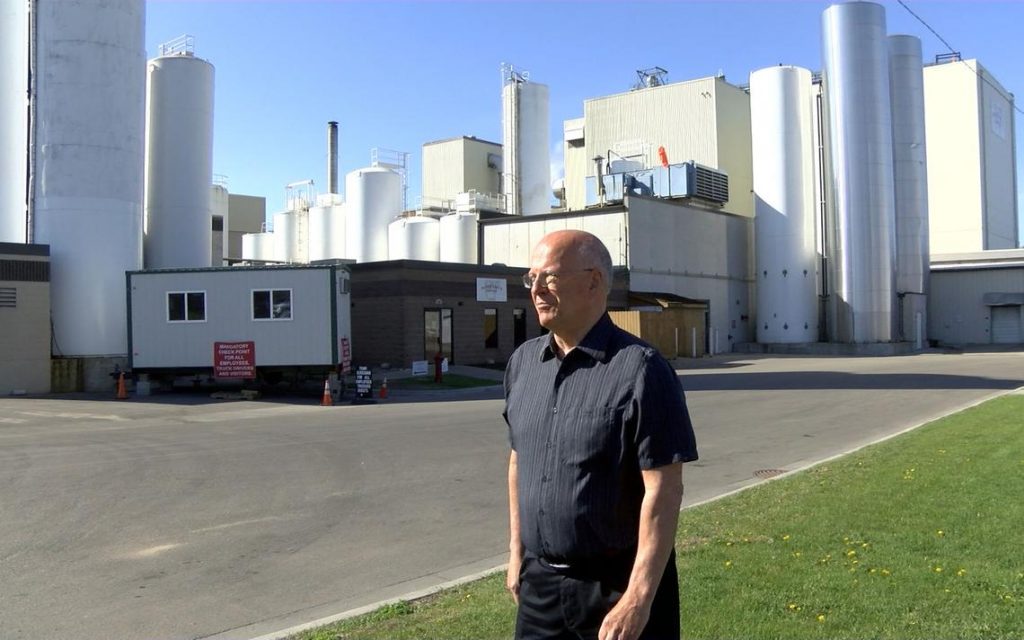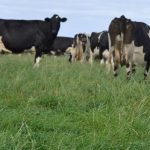
Operations at both plants ran by WG Provisions were suspended for over a month because of COVID-19, according to Darren Dies, president of the specialty meat company that just celebrated its 40th anniversary.
But a program from the U.S. Department of Agriculture is now the driving force for them to reopen.
“We’ve been a leading processor in roasting pigs for the last 40 years,” said Dies of the company that has a cooked meats plant in Jewel, Iowa. The Jewel plant t makes smoked and ready-to-shred meat and there is another plant in Sidney, Iowa, for roasting meat.
The company also has a biomedical arm and supplies various harvest facilities with animal tissue it has collected for medical use.
The comeback process for WG provisions began on April 17, when U.S. Secretary of Agriculture Sonny Perdue announced the Coronavirus Food Assistance Program, which allotted $3 billion for the Farmers to Families Food Box Program. The program partners the USDA with meat distributors whose workforce was significantly impacted by COVID-19 related shutdowns.
Dies said WG Provisions was looking at alternative products they could make at that time. Both of its plants closed after the company’s entire market in services industries was cut off.
“We’d been trying to think of creative ways to get our people back to work, then we saw this program come out and thought it would be a perfect opportunity,” said Dies.
The Farmers to Families program will restart work at the cooked meats plant as well as the roasting plant, said Dies. Large hogs will be harvested and deboned at the roasting plant, then sent to the other plant for final stages.
“Really this program is the impetus to get us back on our feet,” he said. “It’s things like this we wouldn’t have done before, and actually it’s a better fit for who we are.”
The program will provide $5.5 million in funds to WG Provisions to buy live hogs, which Dies said he hopes will “mitigate some of the excess inventory” that exists currently. WG will source the meat from Iowa mainly, but all over the Midwest including Minnesota and Nebraska. The company will also use the funds to buy from packers to get boneless meats that will compliment the program.
“I think it’s a great program if it’s helping companies like us,” said Dies. “It’s a godsend, so we really appreciate that.”
He said while giving WG Provisions a “bridge to the future”, the program also allows them to help people in need at the same time.
The Minnesota-based and farmer-owned dairy cooperative Bongards Creameries, which has been making cheese since 1908, was awarded $480,816 by the USDA for the food box program. The co-op has three production sites, one of which in Perham, Minn., has 4.1 million pounds of milk delivered to it each week, even when prices are low like they are now.
“This will help us for sure,” Daryl Larson, president and CEO of Bongards, said of the food boxes program. “Whether it totally closes the gap remains to be seen, but it will certainly be a big help for dairy farmers.”
What’s in the box?
The bid by WG Provisions was for boxes of cooked pork that are ready to shred, which will be distributed to food banks in the Midwest states. Dies said that includes food banks in Minnesota, Iowa, Missouri, Michigan and Illinois. Interested food banks will contact the company and indicate how much they’d like to buy.
“(USDA officials) have allowed us to work with (food banks) individually, and we get to decide what orders we want to fill, up to our obligation,” he said.
The company is paid through the USDA, said Dies, and then will interface directly with the food banks to get the product shipped and delivered to places in need. The food banks will still be buying the boxes, which Dies said they have the funds to do.
“It’s supposed to be a win-win, and so far it seems like that’s what’s come together,” said Dies.
Dies said people who need a box should contact their local food shelf, and food banks who are interested in buying boxes should contact WG Provisions directly.
Larson said each box from Bongards will have 10 pounds of cheese in it.
“We’ve now got demand for about 12 additional truckloads of cheese to distribute to food banks and other people in need,” he said.
Company rescued
According to Larson, about 90% of the company’s business is from restaurants and other food service industries. So when COVID hit, it was dealt a huge blow.
“Our food service business was decimated,” he said. “We were down as much as 50% of current sales for a period of time, so any additional volume is very, very important for us.”
Dies said that WG Provisions tried to reach out to retail channels after the pandemic shutdowns began but didn’t have any success because a lot of retailers only wanted to deal with current suppliers.
“And honestly, they’re in chaos as well and only can handle products in their distribution,” he said. “So we’ve been struggling.”
WG Provisions employs about 60 people between its two plants in Sidney and Jewel. Dies describes the company as small and family-owned, which focuses on niche markets.
“We have to be nimble, so this business is huge for us to get business moving again,” he said.
The average annual revenue for WG Provisions is a little under $20 million, said Dies, but its business relied entirely on restaurants and other food service industries.
Production and delivery
“We really only have about three-four weeks to get this all done and out the door,” said Dies.
The USDA allotted 10,200 boxes to be made and shipped by WG Provisions. Each box is about 15-pounds, containing five 3-pound packages in each box.
That amounts to about 150,00 pounds of meat. The company already has gotten a few inquiries, said Dies, and about half of its allotment has already been committed.
Production on the boxes will began last week and the company will start shipping boxes this week, Dies said. He said being located in the central part of Iowa will allow them to utilize enough refrigerated carriers for the program. Before the program, the company didn’t have the delivery capacity to ship all the boxes successfully, but Dies said they’ve been contacted by transportation companies that want to help.
“I think the transportation network we have here we’ll be able to handle just fine,” he said.
Dies said he hopes WG Provisions will be allotted more boxes in phase two of the USDA’s program, which he expects to be announced by June.
“There could be additional business coming our way, and in light of our situation, we’re hopeful it will continue after this first one,” he said.























